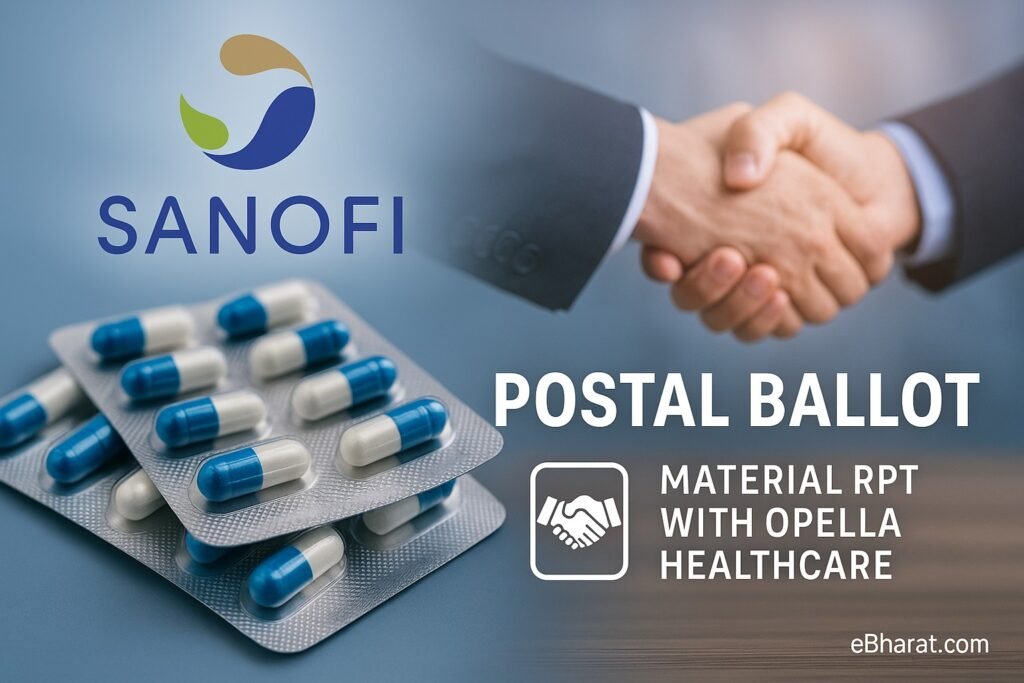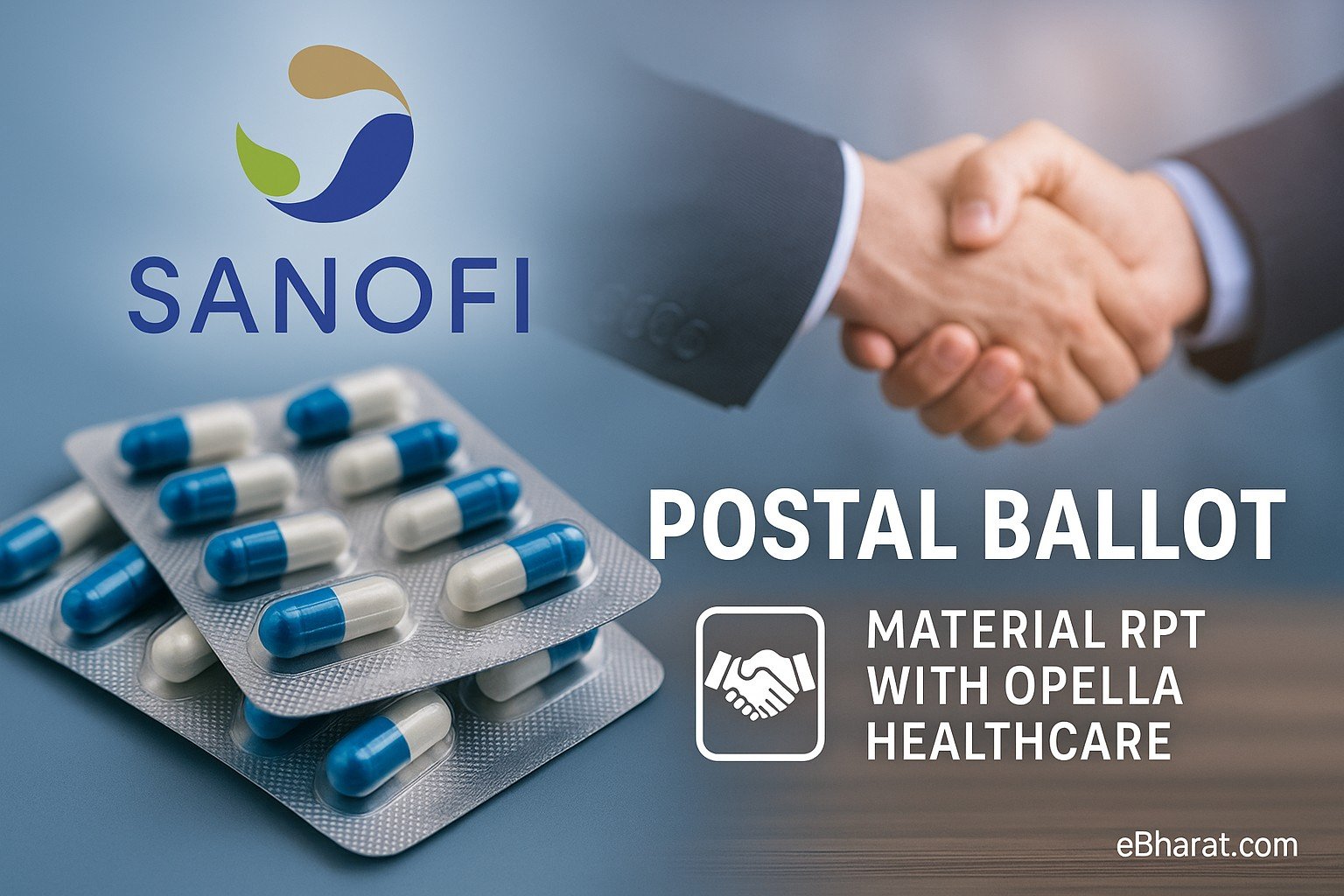
Mumbai | September 30, 2025 — Filed via company postal ballot notice, remote e-voting from Oct 1–30, 2025
Sanofi Consumer Healthcare India Ltd, a well-known FMCG/OTC player, has begun the process of seeking shareholder approval for material related-party transactions (RPTs) with its group company Opella Healthcare. The resolution, put forward through a postal ballot, will test how investors view the governance of one of the most recognizable global healthcare names operating in India.
What’s Being Proposed
According to the explanatory statement, Sanofi Consumer has requested approval to enter into or continue material RPTs with Opella Healthcare India Pvt. Ltd and Opella Healthcare International SAS for FY2025. The proposed ceilings are ₹785 million (₹78.5 crore) for transactions with Opella India and ₹1,100 million (₹110 crore) for dealings with Opella SAS.
The ballot is being conducted through remote e-voting only, with results to be declared after scrutiny in line with SEBI and Companies Act provisions. Independent directors have already reviewed the framework and recommended it for shareholder approval, subject to the cap and compliance with arm’s-length norms.
Why This Matters
For Sanofi Consumer, the RPTs are tied directly to supply arrangements, business support services, and distribution linkages within the Sanofi/Opella group. Investors are expected to scrutinize this move carefully because:
- The company is a big-brand FMCG/OTC name, meaning governance moves here attract more attention than in small-cap or mid-cap names.
- The term “material RPT” itself signals that the proposed value is large enough to cross thresholds requiring shareholder nod, highlighting its importance.
- Any sign of preferential pricing or value transfer to affiliates could invite questions from institutional investors and proxy advisors.
Key Investor Watchpoints
- Transaction Caps: Are the ceilings sufficient to cover business needs without leaving room for excessive affiliate dependence?
- Pricing Basis: Will Sanofi benchmark these transactions against comparable third-party contracts, or rely on cost-plus margins?
- Independent Directors’ Rationale: Shareholders will look closely at the Audit Committee and Board’s reasoning on fairness and necessity.
- Disclosure Depth: Investors will want clarity on tenor, renewal terms, exit clauses, and performance obligations.
- Impact on Margins: Depending on pricing, these RPTs could influence gross margins and cash flows for FY26.
Risks Highlighted
- Governance Concerns: If pricing is opaque, investors may view this as favoring the affiliate at the cost of minority shareholders.
- Over-reliance on Group Entities: High dependence on Opella for services and supplies may weaken Sanofi Consumer’s operational independence.
- Activist Scrutiny: Material RPTs often attract the attention of governance analysts and proxy firms, increasing reputational stakes.
Outlook
Sanofi Consumer is not new to RPT approvals. In earlier ballots, shareholders had overwhelmingly supported similar resolutions, often with approval rates exceeding 99%. This track record provides management with some confidence. However, the market environment in 2025 is less forgiving—investors now expect granular disclosures, transparent benchmarking, and robust independent validation.
If Sanofi convincingly demonstrates that these material RPTs are ordinary-course, arm’s-length, and efficiency-enhancing, the ballot could pass smoothly and even serve as a sentiment stabilizer. But any perception of conflicted terms or weak disclosure could trigger questions and cap valuation upside.













